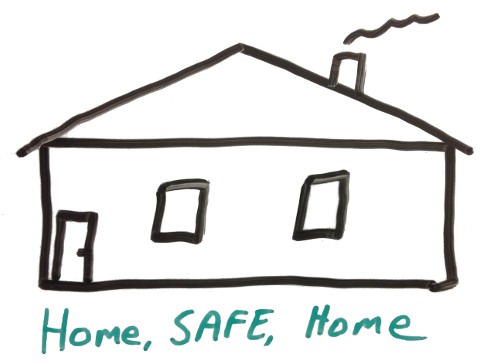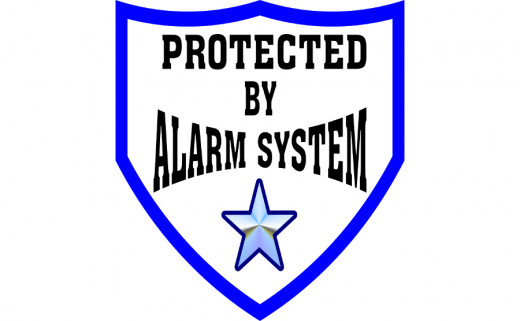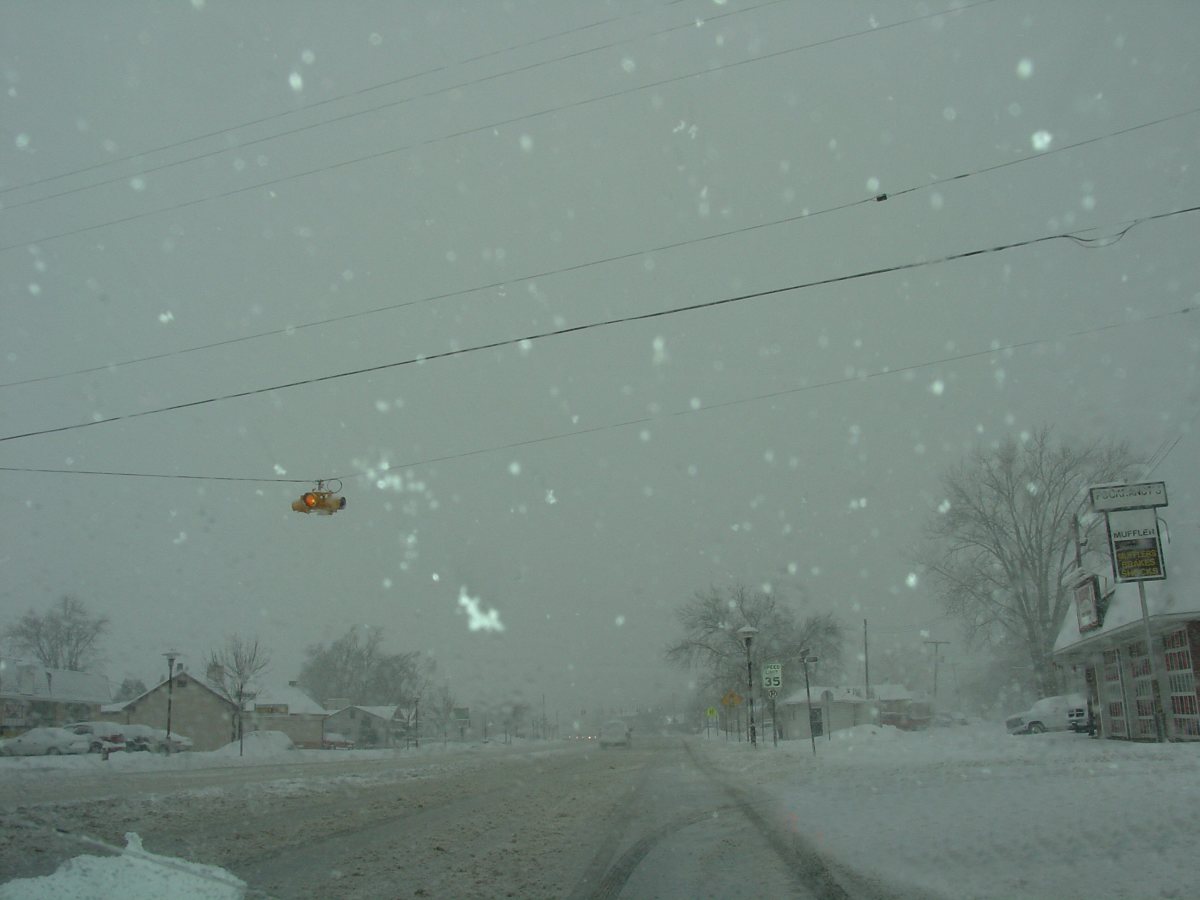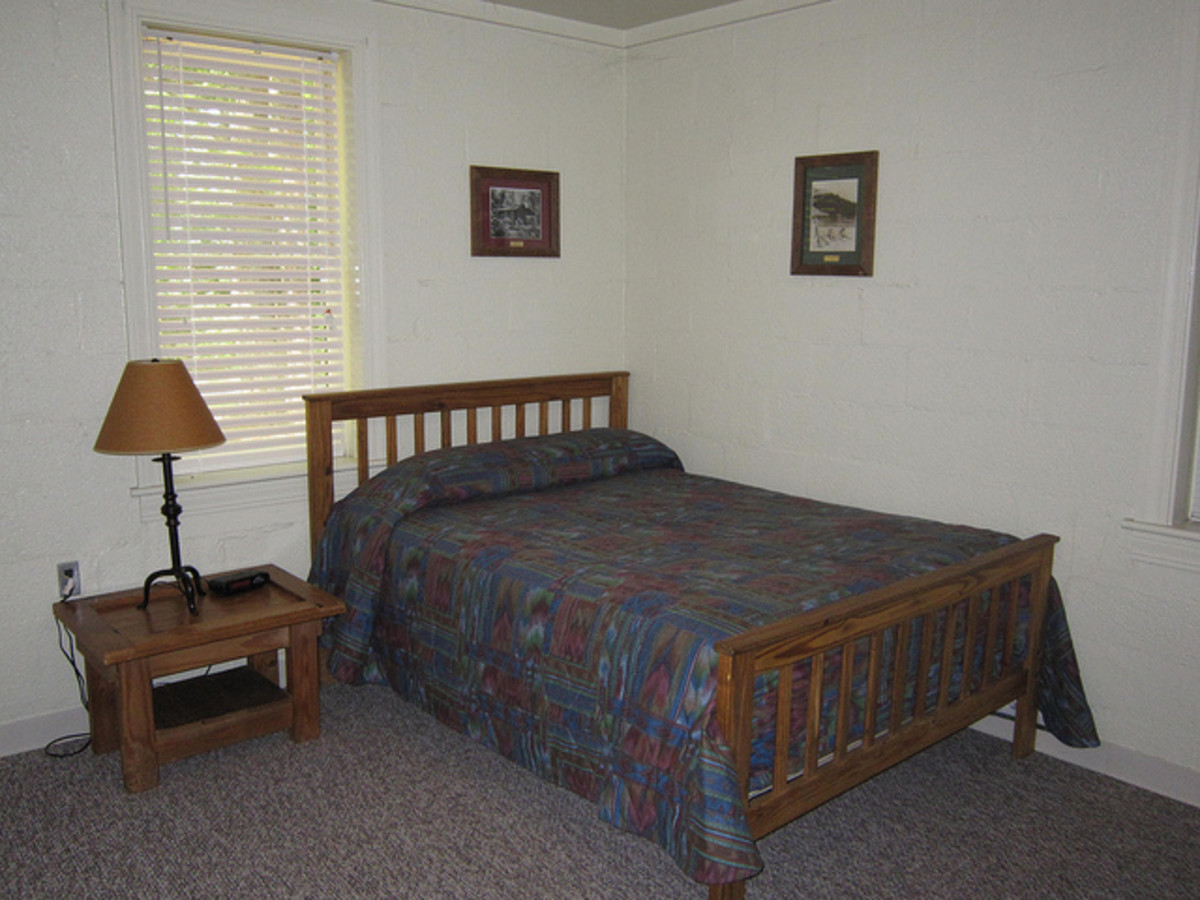12 Tips for Staying Safe While In Your Home

Home Safety
You spend a lot of time in your home. It’s where you relax and enjoy time with your family. It’s full of belongings you use every day and some that bring back cherished memories. You expect it to be a sanctuary from the stresses of everyday life. However, there are many potential sources of danger to both life and property.
Home safety is a big topic with many areas that can be covered. These tips are just a starting point to help give you some things to think about regarding safety around the house.
Tip #1 - Have A Plan
Have a family plan on what to do during different types of emergencies. The plan should cover various scenarios such as a kitchen fire, a basement fire, an intruder in the house, etc. It should cover what actions everyone should take in the different scenarios. If the plan includes leaving the house, have a designated meeting place nearby but at a safe distance.
Practice these plans once or twice a year to make sure that everyone knows what to do. At least one of these practice sessions should happen when it’s dark out. It's especially important that kids do this so they know they can take action during an emergency.
Tip #2 - Fire Extinguishers
Keep a fire extinguisher in your kitchen and another one on each floor of your house. Having more than one is important because you don’t want to be on one side of a fire and have your only extinguisher on the other side. Plus, seconds count when it comes to fire. A small fire can quickly get out of control.
There are different classes of fire extinguishers that are each meant for a different type of fire. For example, a Class A extinguisher is meant to be used on things like wood, cloth, or paper. A Class B is meant for fires involving liquids like oil or gasoline. There are also multipurpose extinguishers called Class A-B or Class A-B-C. Get the ones that are most appropriate for your needs.
Also, be sure that everyone in your house knows how to use the fire extinguishers. It’s important to aim for the base of the fire rather than the flames themselves.
Tip #3 - Keep Your House Number Visible from the Street
Make sure your house number is clearly visible from the street. If you have to call for the police, fire department, or an ambulance, you want them to quickly and easily identify your house when they arrive on scene. (As a side benefit, it helps the pizza delivery guy as well!)
Tip #4 - Smoke, Gas, and CO2 Alarms
Make sure that you have working smoke alarms in your home. In general, an alarm on each floor of the house (including the basement), outside every sleeping area, and inside every bedroom is recommended. Consult your local authorities for the specifics for your area.
If you have natural gas in your home for cooking or heating, a gas alarm is highly recommended. I have one in the utility room that houses the furnace and water heater. I have another one located near my gas clothes dryer.
If you have gas or oil heating, a carbon dioxide (CO2) alarm will also help keep you safe. CO2 is an odorless gas that can be fatal if breathed for too long.
Gas and CO2 alarms can be found combined in a single unit. The ones I use (seen on the right) are very sensitive. “Natural gas” from my cats using the litter box in the utility room has set them off!
Make it a habit to change the batteries in your detectors yearly. Pick a day that's easy to remember, such as the first day of Spring or Fall. Also, keep in mind that detectors have a limited life and need to be replaced after about ten years.
Tip #5 - Keep Copies of Important Papers
Keep copies of important papers (deeds, insurance policies, passports, etc.) located somewhere other than your home. A safe deposit box or a small fire safe at a relative’s house are good choices. Keep the originals in a fire safe.
You could scan these documents into your computer or take digital photos of them and store the files using a service such as Dropbox. For privacy reasons, you may want to encrypt the files so other people can't open them.
Tip #6 - Keep a few Flashlights Around the House
Having a flashlight available is handy in several safety scenarios. First, it’s a ready source of light during a power failure. You can use it to make it to the bathroom and back at night without bumping into anything or turning on the regular light and disturbing your spouse. You can also use it to disorient an intruder by shining it in his eyes.
Modern LED flashlights are very bright, very durable, and use little power. They’re often very small as well, so they’re easy to carry around.
Tip #7 - Install Sturdy Deadbolt Locks
Sturdy deadbolt locks with a bolt that goes at least one inch into a properly installed deadbolt strike plate will make it much more difficult for an intruder to force open a door. It’s also important that there’s no window in or near the door that would allow someone to break the glass and reach in and unlock the door.
There's a type of deadbolt lock called a "double cylinder" deadbolt. This requires a key to lock and unlock it on both sides of the door. While this may be more secure than a regular deadbolt (especially if there's a window in or near the door), they're not recommended. If you need to get out of the house right away because of a fire or other emergency, you'll be locked in the house if you don't have the key handy.
Tip #8 - Keep Escape Ladders in Upstairs Bedrooms
If a fire breaks out in your house at night, it’s vital that you not be trapped. If the fire is outside of your bedroom door, you need an alternate way out of the house. An emergency escape ladder provides the way out.
The ladder is normally stored in a box or bag in the room. When needed, the base of the ladder slips over the windowsill and the rest goes out the window. You climb out the window and down the ladder to safety. These ladders come in various lengths, so be sure to get ones that are right for your location.
Tip #9 - Keep Clutter Under Control
Excess clutter can lead to injuries in your home. You may be injured by stepping on or tripping over clutter. Clutter can hide dangerous conditions such as fraying electrical cords. A room full of clutter can catch fire more easily and burn faster than an uncluttered space. In extreme cases, clutter may block exits or cause injury by tipping over and falling on you.

Tip #10 - Prominently Display Alarm Company Signs
If you have an alarm system, display the signs and stickers the company provides in prominent locations. Burglars are likely to move on to an unprotected house rather than take a chance of setting off your alarm and possibly getting caught.
If you don’t have an alarm system, maybe a friend or family member who does can give you a few extra signs. That may be enough to deter burglars from selecting your home.
Tip #11 - Properly Store Firearms and Ammunition
If your household is one of the estimated 40% of American homes that have firearms, be sure to properly secure your guns to prevent theft or unauthorized use. When you’re not at home, store your guns in a gun safe or secure cabinet to prevent theft. When you are at home, keep any guns that are not under your direct control (e.g. holstered on your person) secured. This is especially true if there are young children in the house. The important thing is that they are accessible to you but not to any unauthorized person.
It’s also important that all people in a house where guns exist have age-appropriate instruction about guns. For young children, that may be as simple as “never touch and tell me if you see one”. For older kids and other adults, take them to the range for hands-on instruction. Educating people about guns is much more effective than trying to hide them.
How much do you keep in you cash stash?
Tip #12 - Emergency Cash
It’s a good idea to have some emergency cash on hand. There are times when major storms or power failures prevent you from getting cash from a bank or ATM. Emergency cash can get you through those times.
Keep a mix of denominations. If all you have are $20 bills, then everything will cost you a minimum of $20 if no one can make change. Keep this money in a safe place somewhere in your home.
Conclusion
There are many small things you can around your house that add up to big improvements in safety. Spending a little time preparing can save a lot of time and trouble if disaster strikes.
Always keep in mind, especially when it comes to fire, that things can be replaced but people can’t. Don't take unnecessary risks to save things that are replaceable.
Related Information
Home Hiding Places - Hard-to-Find Places to Hide Your Valuables
Keep things safe from nosy guests, burglars, and other intruders.
Tips for Staying Safe While In Your Car
If you spend a lot of time in your car, these tips may help you stay safe from accidents and crime.
Tips for Staying Safe from Accidents and Crime Outdoors
Most of us like to spend time outdoors. It’s important to consider personal safety while we’re outside.
Basic Rules of Safe and Responsible Gun Handling
These gun safety tips will help you understand how to handle firearms in a safe and responsible manner.








